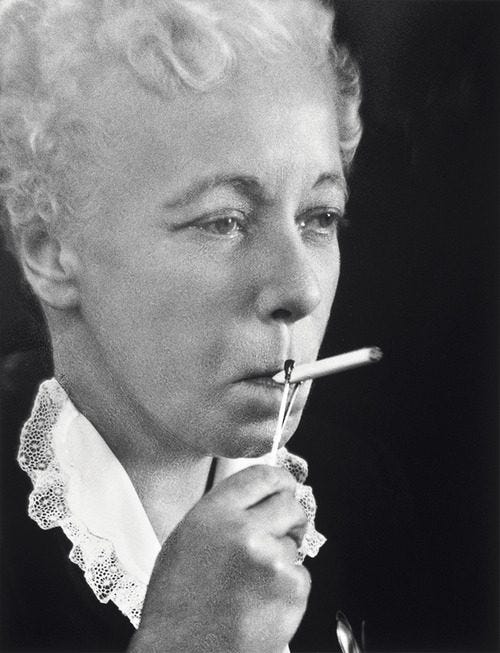Discovered 80 Years Ago - Your Relationship Might Be Stuck in One of 3 Psychological Loops
Women in science, the crap they faced, and the wisdom you missed out on until now
Provoked is a reader-supported publication (subscribe for premium benefits). This is your one-stop source for insights on Purpose, Happiness, Friendship, Romance, Narcissism, Creativity, Curiosity, and Mental Fortitude!
A woman walks into the boys' club of 1930s psychoanalysis, looks around at all the penis envy theories, and basically blurts "Well, this is bullshit." Then she proceeds to write five groundbreaking books that dismantle the theoretical framework while the men in charge pretend not to notice.
You, the reader, might be well-versed in psychology. In fact, you might have read beyond the popular authors and titles of today, such as the relationship guru team here, or my favorite modern relationship guru:
Now, if you want your blood to boil (unrelated to living in a house with an impressive HVAC): Stack the most cited relationship theorists of the 20th century. Karen Horney would be somewhere near the bottom of the pile, sipping tea and side-eyeing Freud.
Which is kind of fucking amazing since Horney wrote The Neurotic Personality of Our Time (1937), New Ways in Psychoanalysis (1939), Self-Analysis (1942), Our Inner Conflicts (1945), and Neurosis and Human Growth (1950). Not one but five books that fundamentally rewrote how we understand human relationships.
10 books. 10 books that challenged patriarchal psychoanalytic assumptions, founded an entire alternative framework, established the American Institute for Psychoanalysis, and influenced generations of therapists. Meanwhile, walk into any Barnes & Noble today and you'll find dozens of relationship guides rehashing watered-down versions of her insights about self-image, interpersonal patterns, and cultural pressures without crediting the woman who originated these frameworks 80 years ago.
The injustice becomes crystal clear when you realize Horney was doing intersectional analysis before the term existed, examining how social conditions create psychological distress, questioning the idea that women's psychological development was inherently deficient, and arguing that neurosis stemmed from cultural factors rather than repressed sexuality.
She is brilliant. And brilliant women were ignored in 1950. I offer one image from a single framework from one book so you can have that “Holy Shit” experience I did when exposed to her in 1998, my first year of grad school.
While Freud dominated with his Oedipal drama, Bowlby built the attachment empire, and Erikson gave us tidy developmental stages, Horney was busy dissecting how anxiety poisons our relationships. But because she refused to play nice with the psychoanalytic boys’ club, her name got buried while her ideas went viral without attribution. Today, her theory of “moving toward, against, or away from people” is echoed in everything from therapy sessions to social media pseudo-explainers. It’s time we gave her credit and took a hard look at how our default survival style might be sabotaging our connections.
Karen Horney didn’t mince words about what screws us up in relationships. That low-grade hum of “people will hurt me” that runs in the background until it shapes every damn thing you do. Her take?


